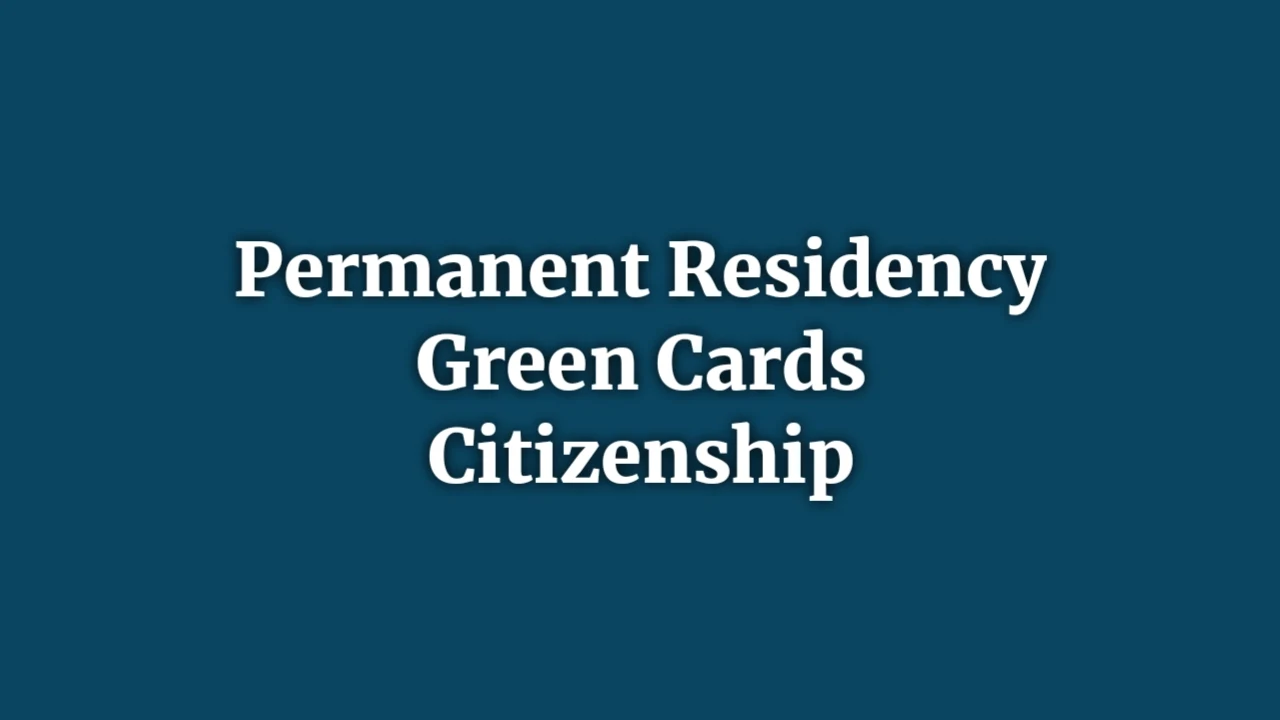When we make discussions on immigration, navigating the complexities of residency, green cards, and citizenship is crucial. Each designation holds its own significance and requirements, impacting individuals' lives profoundly. Understanding the nuances of permanent residency, green cards, and citizenship is essential for immigrants and policymakers alike. This article aims to dissect these concepts comprehensively, shedding light on their significance, differences, and implications within the context of immigration. As we delve deeper into the intricacies of these designations, it's essential to explore the advantages and disadvantages associated with each, providing a balanced perspective on the immigrant experience
Understanding Permanent Residency
Permanent residency serves as a cornerstone for immigrants seeking to establish roots in a new country. It grants individuals the right to reside and work indefinitely within the country of their choosing, offering a level of stability and security. The process of obtaining permanent residency varies from country to country, often involving extensive documentation, background checks, and sometimes sponsorship. Once acquired, permanent residency status may confer certain rights and benefits, such as access to healthcare and education, akin to those enjoyed by citizens. However, it's important to note that permanent residency does not equate to citizenship, as it lacks certain privileges, including the right to vote and hold public office.
Advantages of permanent residency include the stability and security it provides, allowing immigrants to build better lives for themselves and their families. It opens doors to social services, healthcare, and educational opportunities, fostering integration and belonging within society. However, permanent residency may come with certain restrictions, such as limitations on travel outside the country for extended periods and the inability to vote or hold public office. Additionally, some countries impose stringent renewal requirements and residency obligations, adding layers of complexity and uncertainty to the immigrant experience.
Understanding Green Cards
The term "green card" is synonymous with lawful permanent residency in the United States, representing a coveted status for millions of immigrants worldwide. Issued by the U.S. Citizenship and Immigration Services (USCIS), a green card signifies an individual's authorization to live and work permanently in the United States. The application process for a green card can be complex, often requiring sponsorship by an employer, family member, or through certain categories such as refugee or asylum status. Green card holders enjoy many of the same rights and privileges as U.S. citizens, including access to social services and protection under the law. However, they are still considered immigrants and must meet specific requirements to maintain their status, such as renewing their green card periodically and avoiding extended absences from the country.
Obtaining a green card unlocks a myriad of opportunities for immigrants, including access to employment, education, and social services on par with those enjoyed by citizens. Green card holders have the freedom to live and work anywhere in the country, pursuing their dreams and aspirations without fear of deportation. However, the path to obtaining a green card can be arduous and time-consuming, often requiring sponsorship and navigating complex bureaucratic processes. Green card holders may also face challenges such as limited job mobility, as some employers may be hesitant to hire non-citizens, and the constant need to renew their green cards every ten years can be a source of anxiety and uncertainty.
Understanding Citizenship
Citizenship represents the highest level of membership within a country, conferring upon individuals a comprehensive set of rights, privileges, and responsibilities. Unlike permanent residency, citizenship is not contingent upon sponsorship or renewal and is often acquired through birth, descent, or naturalization. Naturalization is the process by which immigrants become citizens of a new country after fulfilling certain requirements, such as residency, language proficiency, and passing a citizenship test. Once granted citizenship, individuals gain the right to vote, run for public office, and enjoy unrestricted travel benefits. Citizenship also provides a sense of belonging and identity, fostering a deeper connection to the country and its values.
Advantages of citizenship include full membership and participation in the social, political, and economic life of a country. It grants individuals the right to vote, run for public office, and enjoy unrestricted travel benefits, empowering them to shape the future of their adopted homeland. Citizenship also provides a sense of security and permanence, eliminating the risk of deportation and separation from loved ones. However, the process of naturalization can be lengthy and demanding, requiring applicants to meet stringent residency, language, and civics requirements. Additionally, dual citizenship may not be recognized in some countries, forcing individuals to renounce their ties to their birth country, which can be a deeply personal and emotional decision.
Conclusion
In the tapestry of immigration, permanent residency, green cards, and citizenship are integral threads, weaving together the diverse experiences of immigrants around the world. While each designation serves a unique purpose, they all share the common goal of providing individuals with opportunities for growth, prosperity, and belonging. As societies continue to grapple with issues of migration and integration, understanding the advantages and disadvantages of these concepts becomes increasingly important. By acknowledging and addressing these nuances, policymakers can craft more inclusive and equitable immigration policies that empower immigrants to thrive and contribute fully to their adopted communities. Ultimately, it is through understanding and embracing the diverse experiences of immigrants that nations can harness the full potential of their immigrant populations, enriching their societies and strengthening their collective fabric for generations to come.

